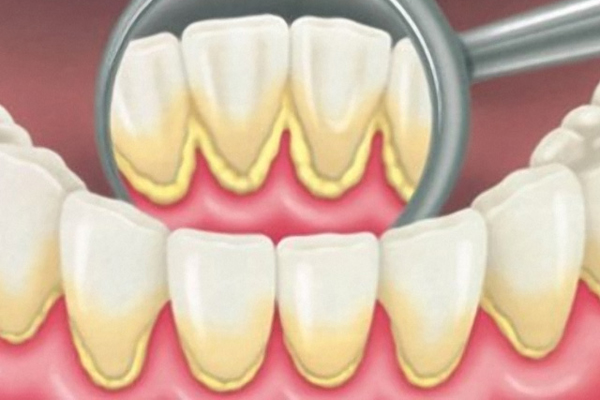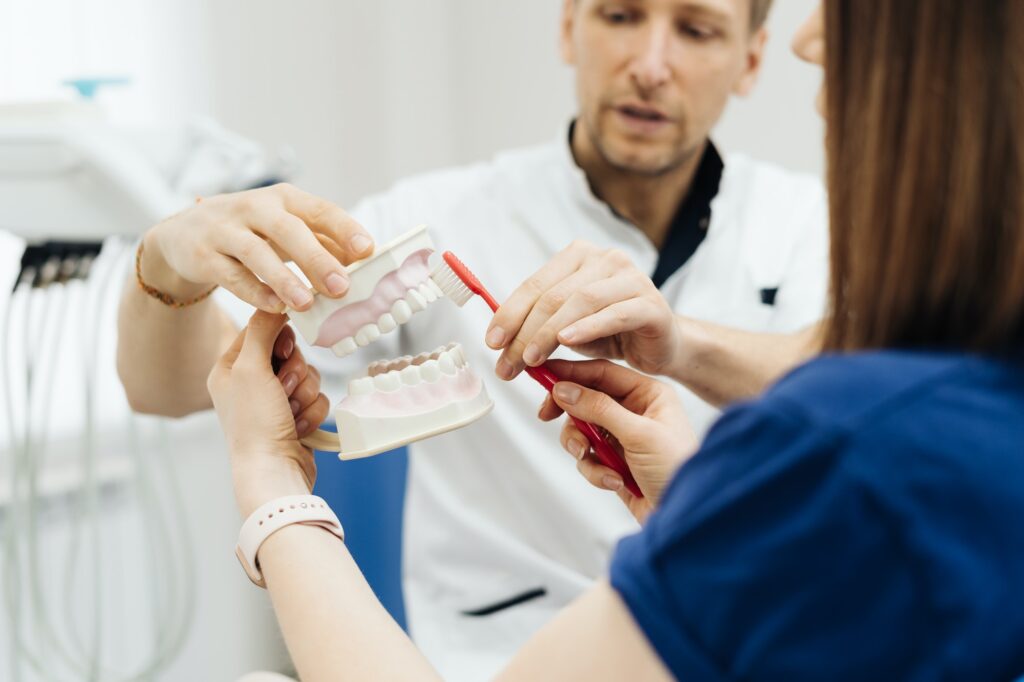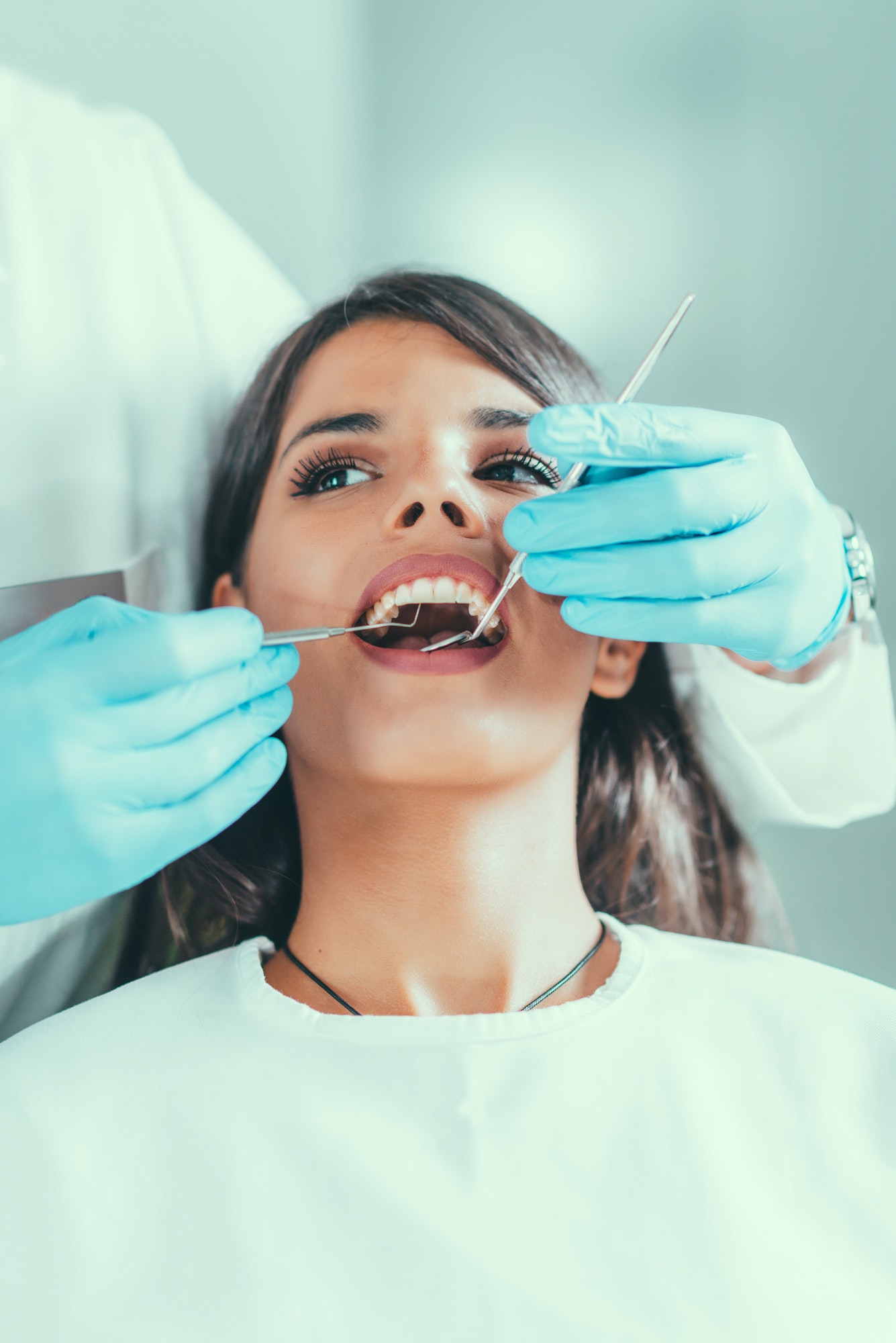- Dentistry Mosonmagyaróvár
Regular brushing and oral care at home are extremely important, but it is a misconception that this alone is enough to keep your teeth and gums healthy! Even on the most regular teeth, there are some areas that are difficult to reach with at-home oral care and can only be perfectly cleaned with in-office oral hygiene.


Dirt that sticks to the surface of your teeth forms plaque, also known as plaque. Plaque provides a breeding ground for certain oral bacteria that can produce acid that attacks tooth enamel and causes gingivitis – all of which can lead to bad breath, tooth decay, gum disease and, if left untreated, even tooth loss. Plaque builds up over time, which cannot be removed with a toothbrush and becomes contrasting in color with the teeth. At this stage, oral hygiene treatment by a dentist is important not only for health but also for aesthetics.
Professional oral hygiene treatment involves removing plaque and debris that stains the tooth surface.
Plaque is crucial in the development of periodontitis. If plaque is not removed, it can cause gingivitis, then decay the tooth supporting structure, and it all leads to tooth loss.
During oral hygiene treatment, plaque removal is performed using ultrasound. The discoloration can be effectively and quickly cleaned from the tooth surface with a device (called PROFIFLEX).
Tartar appears as yellowish-brown, gray or even black deposits on the surface of the teeth and is usually visible to the naked eye. But it can also be recognized by certain symptoms, such as bad breath, swollen, painful, and sometimes bleeding gums, or bad breath. Unfortunately, in addition to these problems, tartar can also cause internal health problems, skin and joint problems, and hair loss because the inflammatory processes it causes can spread throughout the body.
The most important steps in oral hygiene treatment are as follows:
The final polishing not only gently removes plaque and discolouration from the teeth, but also makes the tooth surface more even, which makes it more difficult for plaque to adhere and tartar to form again.
Oral hygiene treatment is usually required every 6-12 months. Frequency also depends on the patient’s oral care technique, diet, genetics, and whether or not they wear dentures. For example, dental implants have weaker gums than natural teeth. Regular removal of plaque and tartar as well as healthy gum tissue are therefore particularly important for a long-lasting and successful implantation.
The oral hygiene treatment typically lasts 30-60 minutes and includes ultrasonic tartar removal, buffing to remove plaque and stains, gum cleaning if necessary, and a personal oral care consultation.
In the oral hygiene treatment, the teeth do not need to be drilled, so there is no pain. However, in the case of particularly sensitive teeth, abrasion of the tooth neck or receding gums, the treatment can be uncomfortable, which is why local anesthesia is used.
Although this largely depends on diet, oral hygiene habits, and genetics (such as the composition of saliva), there is not a person who does not have stubborn plaque and tartar on their teeth over time that cannot be removed at home leaves. So everyone needs regular dental check-ups and oral hygiene treatments, but as part of treatment, we also share oral care tips at home that can significantly delay the build-up of harmful plaque. Polishing during treatment also helps postpone this delay as plaque has a harder time adhering to the more evenly aligned tooth surface.
Tartar can no longer be removed from teeth with a toothbrush. Do not experiment at home with solutions that attack tooth enamel. Professional oral hygiene treatment is required for removal! Tartar removal is performed in the practice with an ultrasonic device both above and below the gums. The end of the device makes a rapid vibrating movement, and the resulting ultrasound can “blast” the tartar away from the tooth surface without damaging it.
For a few days after the oral hygiene treatment, the gums may become a little more sensitive, swell, bleed when brushing your teeth and your teeth may become more sensitive to cold. All of this is perfectly normal, especially if stubborn tartar that has inflamed the gums for a long time has been removed during treatment. Using toothpastes and oral care products for sensitive teeth and inflamed gums can be very helpful during this transition period.

Fill out the form, click the login button, and we will contact you soon.
Dr. Bekő Gabriella
Implanmed © 2022. All rights reserved!